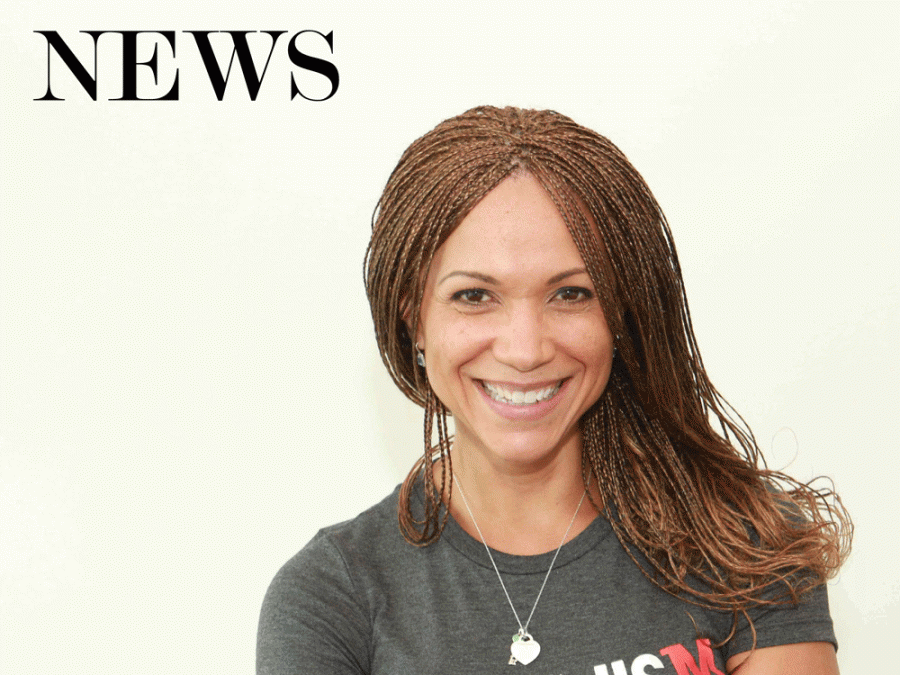Melissa Harris-Perry kicks off Diversity Summit with call to courage
March 31, 2016
In the words of Professor Carol White, her introducer, Melissa Harris-Perry addressed the theme of the University’s first annual Diversity Summit with “nuanced subtlety and delicious wit.”
On March 29 in the Weis Center, Harris-Perry delivered a stimulating lecture as part of the summit as well as the 29th Annual Black Experiences Lecture.
“Identity, Inclusion & Social Transformation: Centering Race, Power & Privilege” is the theme of this year’s summit. Harris-Perry honed in on the specific theme of blackness and how it is represented in both the nation and on college campuses.
As a mentee of Maya Angelou, Harris-Perry learned the value of courage and reminded the audience of its necessity by making frequent calls for courage throughout the presentation. One of the talk’s major takeaways was the message, “the struggle continues,” as Harris-Perry emphasized that even in the face of inevitable failure it is important to stand by your values, a task that often requires courage.
She made the talk relevant to students and professors alike, offering advice on how to better address social issues in the classroom in light of the current political and cultural climate.
“I thought that the Harris-Perry talk was lively and provocative. While there were several points she made that I did not agree with, the foundational premises of the talk—particularly the need to be able to read, interpret, and contextualize the racial landscape of the United States in order to be able to understand the differences in our racial lenses and her assertion that we need to have real courage to confront these differences—were salient and worth engaging seriously,” Professor of English and Bucknell Arts Coordinator Carmen Gillespie said.
Harris-Perry spoke of how the concept of blackness operates in different contexts. She pointed to the election and subsequent re-election of President Barack Obama as a cultural marker of blackness that stands in contrast with much of the American experience, citing incidents of police brutality against blacks such as Michael Brown and Eric Garner. Drawing on insight from W.E.B. Du Bois’s concept of “ontological blackness,” Harris-Perry defined blackness as “something that is a problem.” While she acknowledged that having problems is part of the human condition irrespective of one’s power or privilege, she highlighted the difference between “having problems and being a problem.”
Women’s bodies also prove troubling for what Harris-Perry coined “the American project.” Harris-Perry warned her audience at the outset that she intended her talk to be “provocative” and she did not disappoint, making explicit references to the female uterus in demonstrating how it has become a matter of political contention.
“No other internal organ receives as much public policy attention as the uterus,” Harris-Perry said.
As the means of reproduction, the female body convolutes questions of citizenship and individual rights.
As college students come-of-age in a social climate fraught with political and cultural strife, they respond in ways Harris-Perry deems “not surprising given the world we currently live in.” Harris-Perry’s main criticism, however, lies in the academic institutions themselves. She points to how college campuses are becoming increasingly racially and economically homogeneous, despite administrators claiming that they have zero tolerance for racism. Harris-Perry accused today’s institutions as valuing “proficiency over passion … success over exploration,” and emphasized the benefit of “encountering ideas and experiences that make us uncomfortable, challenge our sense of self, force us to think differently, and disrupt our worldview.” Harris-Perry said that “your ideological opponent is not your mortal enemy,” and encouraged students with differing ideas to work together.
“I was struck by her comment that college is supposed to be hard, and if you don’t think it is, then your institution has failed you. You can love your college and still think it is challenging, as many of our students do, but I don’t believe that our institution has pushed its students to challenge their opinions and beliefs by engaging with different material in the way that Melissa Harris-Perry imagines we ought to be,” Elizabeth Semeraro ’16 said.
The talk was “much needed for the Bucknell community as her speech expressed valuable information about what it means to be part of our generation and the goals we should be trying to achieve in regards to race relations, women’s rights, gun violence, and other controversial topics of today’s society,” Leah Cannon ’18 said.






















phillip Brisim • Apr 1, 2016 at 3:35 am
Did she wear the white tampon earrings……………….She is famous for that fashion statement.